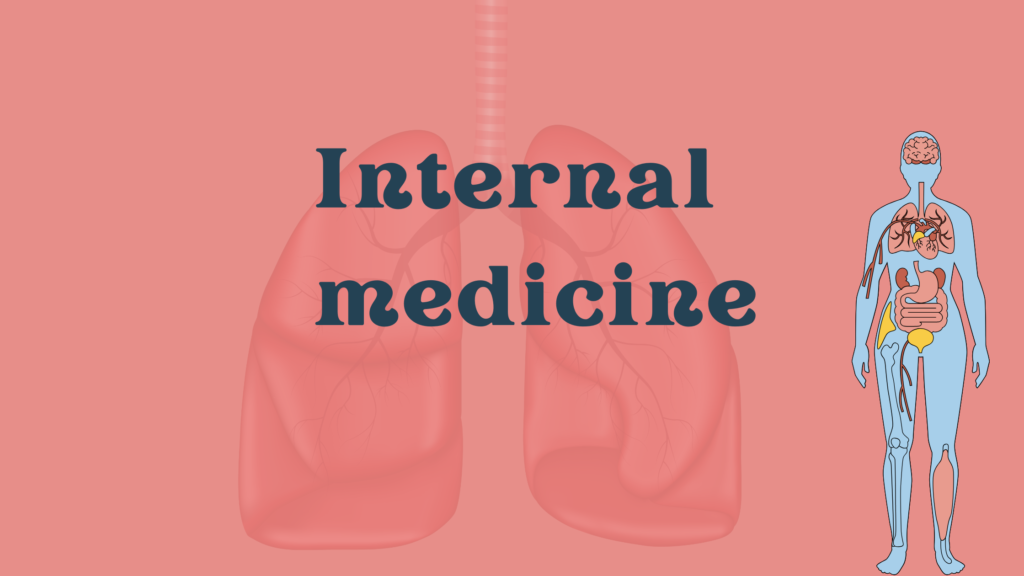Internal medicine is a medical specialty focused on the prevention, diagnosis, and treatment of adult diseases, especially those involving internal organs. Physicians in this field are called internists.
🩺 What Does an Internist Do?
- Manage complex, chronic illnesses such as diabetes, hypertension, heart disease, kidney disease, and more.
- Treat a wide variety of conditions affecting the internal organs including lungs, heart, gastrointestinal tract, kidneys, liver, and endocrine system.
- Provide comprehensive care including health maintenance, disease prevention, and treatment of acute illnesses.
- Coordinate care with specialists when needed.
- Often act as primary care providers for adults.
🔍 Scope of Internal Medicine
- Diagnosis and management of complex illnesses
- Managing multiple conditions in one patient (multimorbidity)
- Focus on detailed diagnostic evaluation and problem-solving
- Inpatient hospital care and outpatient clinic management
- Emphasis on adult patients (usually 18 years and older)
👨⚕️ Subspecialties of Internal Medicine
Many internists pursue additional training (fellowships) in areas such as:
- Cardiology (heart)
- Gastroenterology (digestive system)
- Endocrinology (hormones and metabolism)
- Pulmonology (lungs)
- Nephrology (kidneys)
- Rheumatology (autoimmune and musculoskeletal diseases)
- Infectious Disease
- Hematology/Oncology (blood disorders and cancer)
- Critical Care Medicine
- Geriatrics (care of older adults)
